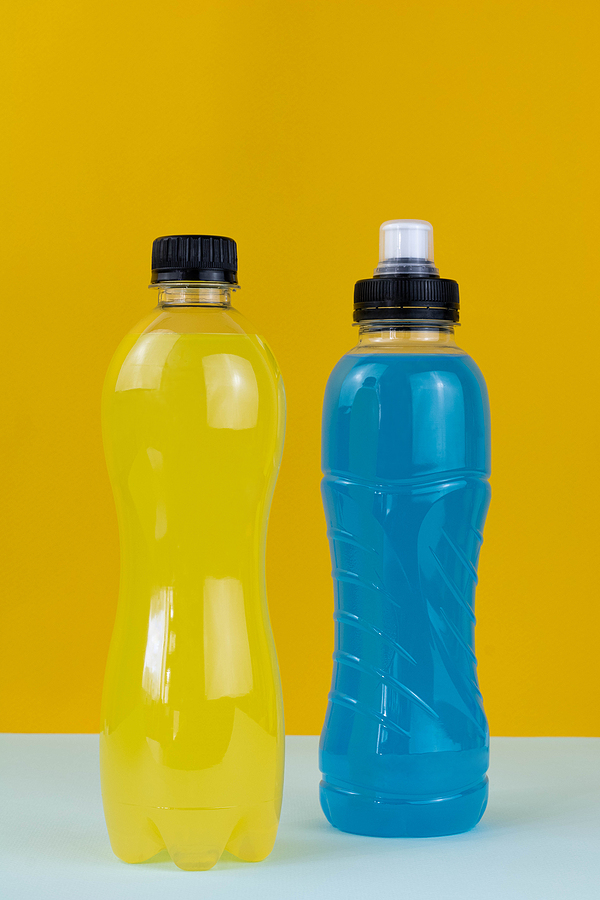菜单
High sugar and high acid drinks are responsible for many cases of dental erosion and decay around the world. During the summer months, reaching for your favourite cocktail, a glass of bubbly or fresh fruit juice, can be tempting. But did you know such drinks could be reducing the lifeline of your teeth?
In this blog, we look at why and what can be done if your teeth have been affected by tooth erosion or decay.

Firstly though, let’s take a look at a comparison between dental erosion and dental decay.
Decay is the process that starts with the demineralisation of tooth enamel, the protective layer coating the dentine (the weaker substance below) on your teeth.
Cause: Sugary food and drink causes plaque to form on your teeth and acid is created as a by-product.
Location: Specific areas of affected teeth.
Consequence: Enamel breakdown, causing a hole (a cavity) to develop in your tooth.
Treatment: Once the decay has been removed from your tooth, a filling deals with the hole left behind. Leaving this hole untreated will lead to an infection at the heart of the teeth, destroying the pulp (the living substance) inside it. As a result, it could be necessary to remove your tooth, if root canal treatment cannot salvage it.
This is the process that results in permanent damage to your tooth enamel. Acids are responsible for this.
Cause: Extrinsic acids (external) from the food and drink you eat and intrinsic acids originating in the stomach (internal). Those who suffer with problems such as acid reflux have difficulties with extrinsic acids finding their way into the mouth.
Location: Erosion affects the whole of a tooth’s surface, as opposed to decay, which is localised.
Consequence: As the tooth weakens, a yellow and dull appearance can follow. Tooth sensitivity is also a symptom of erosion.
Treatment: Unfortunately, erosion isn’t reversible. It’s for this reason that we’re constantly promoting the message of prevention to our patients.
As we’ve established above, sugar and acid production are the culprits responsible for a decline in your oral health. Unfortunately, the drinks industry isn’t really fit for purpose, as many of our favourite drinks are actually destroying our teeth.
Some popular summer drinks such as Pimms and lemonade contain as much as 25g of sugar per drink. Meanwhile, your average strawberry daiquiri comes in just afterwards, containing 17g of sugar.
But it’s not just alcoholic drinks that cause harm to your teeth. Fruit juices such as Tropicana orange juice contains staggering amounts of sugar (22g per serving to be precise). Well-known smoothie brand Naked’s Green Machine drink will give you a serious insulin spike, no thanks to the 29g of sugar in each serving.
We are pleased to inform you that yes, there are indeed! Some of our team’s favourite after-work drinks that we enjoy here in Canary Wharf include beer (which is both low in sugar and acids when compared with other alcoholic drink choices), spirits such as gin (it’s the mixers that pile on the sugars and acid!) and red wine, which is more tooth-friendly than it’s white and pink-coloured counterparts!
Just remember, if you are enjoying these popular summer drinks, sip plenty of water in between to protect your teeth from an acid attack.
Understanding the relationship between pH levels and acidity is another key takeaway from this blog.
A pH level is a measure of how acidic or non-acidic a substance of liquid is. The pH scale runs from 0-14, with 7 being neutral.
A low pH level is synonymous with high acidity. Here are a few pH levels of some of the most popular drinks on supermarket shelves:
Coca-Cola: pH level 2.37
Pepsi: pH level 2.39
Dr Pepper: pH level 2.88
Gatorade: 2.97 – 3.21
Diet Coke: pH level 3.10
Redbull: pH level 3.25
Orange and apple juices: pH level 3.5 – 4
Black coffee: pH level 4.85 – 5.1
Milk: pH level 6.5 – 7
Flat water: pH level 7
Your teeth are much less vulnerable when you enjoy a drink with a pH that matches that of saliva, which sits between 6.2 and 7.6. So, the more regularly you enjoy low pH level drinks, the more strain you place on your tooth enamel. place on your tooth
As you read through our pH level chart above, you may have been surprised to see Gatorade featured as a drink with a lower pH level. After all, it’s a sports drink – aren’t they meant to be healthy?!

A study by the British Journal of Sports Medicine found that the most commonly reported dental problems amongst athletes were enamel erosion, tooth decay and gum disease. The study also found a solid trend between the consumption of energy and sports performance drinks and poor dental health amongst athletes. Surprisingly, athletes who competed at the London 2012 Olympics were identified as having a myriad of problems with their teeth, believed to be linked to the sports drink they use to fuel themselves.
If you’re a sportsperson competing at a high level, make sure you take good care of your teeth by visiting our team of dentists here in Canary Wharf. We can provide personalised advice on appropriate hydration and guide you on how to prevent future dental erosion and decay.
We are currently accepting new patients. If you live in east London, our state-of-the-art dental practice is within easy reach by tube and bus.

Contact us to find out more about our practice and to arrange an appointment with one of our professional and caring team.
回到博客


"非常好的客户服务,接待处的工作人员友好而平易近人。伦敦最好的牙科诊所,有专业的牙医,给你彻底的检查和..."
“5 star clinic no doubts!”
"伟大的工作人员和他们为客户提供的惊人服务。我第一次去找Jafri医生是一次很好的经历。他立刻就把你放在了......"
"有一个非常令人满意的服务!时间很完美,他们有一个干净的氛围。他们做了详细的检查,并确保我出来时......"
"我有一个牙齿开裂的问题,InnovaDent的友好工作人员已经迅速解决了这个问题,他们为我预约了..."

